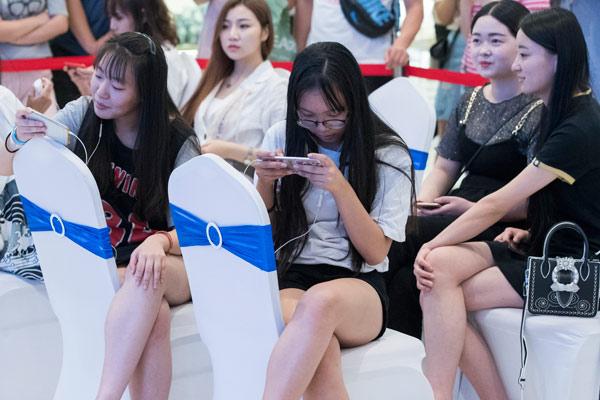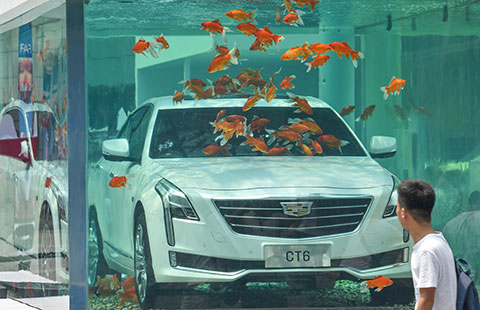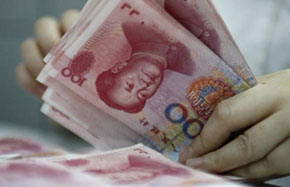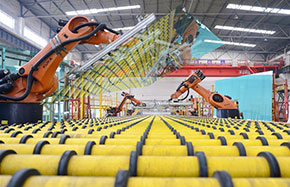Battle lines are drawn for foreign brands
 |
|
A group of female amateur mobile gamers compete for awards sponsored by a shopping mall in Taiyuan, Shanxi province. [Photo by Hu Yuanjia/For China Daily] |
Foreign game companies face a bruising battle in trying to tempt Chinese players.
While they have a global approach from day one, overseas operators can find it difficult to crack the toughest market in the world.
With a user base of 600 million, China has the most localized gaming sector in the world.
Up to 93 percent of money spent by domestic players on Apple's iOS app store goes directly to Chinese-developed games, a report by London-based venture capital firm Atomico showed.
There are generally just two ways successful Western games take off in China, according to Eylon Aviv, partnership manager for ironSource, an Israeli mobile app monetization company in Beijing.
"Either they quickly bring it (the game) over here or they make a copy, and the copy is a little more China-oriented," Aviv said. "If they're not quick enough, then it (the opportunity) is gone".
After partnering with King, the European developer of Candy Crush Saga, in 2014, tech giant Tencent Holdings Ltd released a localized version of the popular puzzle game in China.
But one Chinese company had other ideas. Developer Happy Elements Holdings Ltd created its own Candy Crush Saga look-alike called Anipop, which was released in 2014, then globally. It is now one of the most popular casual games in China.
Liu Xiaozai and Zhou Baiqing, avid gamers living in Beijing, have noticed distinctions in content depending on region.
California-based Blizzard Entertainment makes games with long stories, such as Diablo, that players can immerse themselves in, while League of Legends, created by Riot Games, now a branch of Tencent, attracts gamers by its "addictive playability", Zhou, 32, stressed.
"There is always competition between Chinese game companies," Liu, 33, said. "They always put money and advertisements first. This takes the fun out of the game."
A game's success in a foreign market also depends on how difficult it is. Many do not cross over well.
"A South Korean game, as it is, will not succeed in the United States, because it's so hardcore," Aviv of ironSource said. "What you would call a hardcore game in the US is not even mid-core in Asia."
Having foreign games distributed and translated is also not enough, according to Tom Wehmeier, principal and head of research at Atomico and author of its report.
Chinese gamers have unique preferences in terms of design, gameplay and monetization.
"This is where localization is really a critical factor," Wehmeier said.
But ultimately if players get their hands on a great game, which Chinese companies have a track record of producing, it will not matter where it is produced.
"China is a global games giant," Wehmeier said. "They produce amazing games, so we shouldn't be surprised that all of that is being eagerly consumed by Chinese gamers."
Mark Marino and Zhuang Qiange contributed to this story.

























